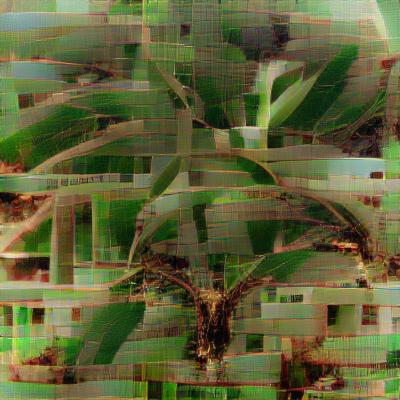Algorithm Monocultures
A while back I got really into "corporate blogs". Why are they so soulless? Why do they all sound the same? I asked a friend had managed one of these blogs, and she told me it was all SEO. It's written to trick Google's Algorithm into ranking the root domain higher.
Yesterday I saw this tweet:1
https://twitter.com/dave_universetf/status/1419128526557433859
(I'll go ahead and spoil the joke: YouTube's recommendations algorithm optimizes for videos at least ten minutes long, so people stretch out 3 minute videos to ten minutes.)
You might be familiar with Goodhart's law: "When a measure becomes a target, it ceases to be a good measure". Youtube and Google are trying to serve "Good Content", a subjective and ineffable qualifier, and come up with metrics that sort of correlate. Content producers want to maximize their reach, which Google wants them to do by producing Good Content but judges the Good Contentness by the metrics. Producers then aim to maximize the metrics, and since the metrics only sort of correlate, this doesn't lead to the Goodest of Contents. Over time people get better and better at exploiting the metric and it correlates less and less with Goodness, until everybody's spintaxing Upworthy articles. Then Google panics and finds a new metric, killing off the whole cottage industry of growth hackers and fertilizing the ground with their ashes, for new growth hackers to spring anew.
Think of it like an ecology. Consumer attention is the energy source, the "calories", that producers need to live.2 Content platforms like Google and Facebook collect and concentrate energy like plants. Plants want to be consumed in a mutualistic way, where consumers pollinate them and disperse seeds.3 But Hyrum's Law tells us that all sources of energy in an ecology will eventually be exploited. So plants also have parasitic relationships: aphids eating the sap, witchweed tapping the roots, viruses attacking the cells. These harm the plant, but the aphid doesn't care what the plant wants, it just needs calories and sees an available source.
We think of parasites as "evil", but they're just another part of the ecosystem. Each parasite only targets one species, maybe a handful at most, and the average forest has thousands of kinds of plants. This puts buffers between susceptible plants, limiting the parasite's spread and the degree of impact it can have on the plant. Over time, different varieties of the plant species can develop defense mechanisms, further impairing the parasite and forcing it, in turn, to evolve. Pretty similar to the interactions between content platforms and content producers.
One crucial difference: the internet ecology doesn't have thousands of different "plants". Google et al are more like giant farming monocultures. Parasites tear monocultures apart.
Imagine if, instead of Youtube, we had 100 different video sites, all with the exact same videos but different UIs and Good Content Algorithms. Someone gaming Youtube-26's Algorithm would only get 1% of the benefits they currently do, and they couldn't game multiple Algorithms in the same video, and people would more easily be able to see that this is SEO and not Good Content (by comparing their recommendations with other Youtubes). This significantly raises the cost of "parasitism", leading to more people trying to get popular by straight-up making Good Content.
Obviously there are lots of problems with this idea. For one, it'd quickly recentralize back into an internet monoculture. Farmers plant monocultures because the benefits (efficiency, scale, standardization) are obvious and the drawbacks (parasites) aren't immediate. And content producers would hate having to submit videos to 100 sites, just as we'd hate checking 100 sites for videos. And actually communicating between sites is hard... look, this isn't a good solution to the SEO problem. But I think my read on the systemic problem is pretty good: centralized megaplatforms are highly vulnerable to metric gaming, just as monocultures are to parasites.
Any other insights we can pull from ecology? Probably. Maybe time to start another crossover project or something
Some AI Art Stuff
If you follow me on Twitter you might know that I've gotten really, really into AI-generated art. You put in a prompt and you get back a picture; it's neat and surprisingly beautiful. I've been working on a notebook to make it more accessible to nonprogrammers. Here's what it gives me for the prompt "Algorithm Monoculture":

"User-friendlyish" notebook is still in beta but you can try it out here if you want.
-
I started drafting this out last week, and then was hit by a major depressive episode and took the week off. That's why there wasn't a newsletter. Sorry! ↩
-
Really it's "money", for which consumer attention is a metric that sort of correlates, leading to similar problems in exciting new ways. ↩
-
Plants don't actually "want" things, at least in the way humans conceive of "wanting", but I didn't want to airquote every single anthropocentric term. Read "wanting" as "this behavior is most compatible with the propagation of the specific plant species, so over eons the plant evolved traits that interact with the broader ecology to make this outcome more likely". ↩
Add a comment: